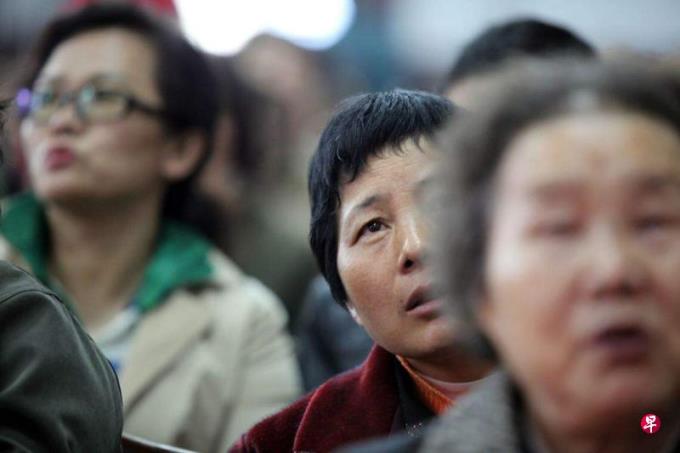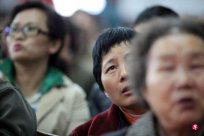
China cannot only know the benefits of young people, but also to see the shortcomings of the young population under the unprecedented complex situation at home and abroad.I think that China, where the gap between the rich and the poor is extremely serious, is difficult to afford the opportunity to flow up the fair and upward flow of a younger population. Such younger youth is tantamount to a timing bomb.
China is on the edge of unprecedented population changes.With the rise of the median population, the decline in birth rate, and the reversal of the population pyramid, by 2050, the population of China over 60 years old is expected to account for more than one -third of the total population.This huge change brings challenges and opportunities at the same time.China should not consider the aging of the population as a burden, but to actively embrace this trend to promote the development of society, economy and culture.
The following key factors have led to rapid aging of Chinese citizens.
1. Many years of only child policy.This controversial policy implemented from 1979 to 2015 has led to a sharp decline in birth rates.Most couples have only one child, and the growth rate of the aging population exceeds the young replacement population.
2. Increased life expectancy.The improvement of medical, public health and living standards has extended people's expected life.The life expectancy of the Chinese in 1980 was only 66 years old, and it has now increased to 77 years old.The extension of life expectancy directly leads to population aging.
Three, "4-2-1" phenomenon.At present, Chinese couples need to bear the heavy responsibility of supporting two old people and raising a child.This heavy burden prompted people to decide children who have less fertility and exacerbate their population aging.
The aging population will undoubtedly test the economic development and social service capabilities, but this change should not be regarded as an imminent crisis.Instead, China should use the aging of the population as a momentum of sustainable development.
China's labor force is often described as economic burden, but the actual situation is far more complicated than this.Unprocessed, supporting a large number of elderly population will bring challenges such as labor force reduction and increased social welfare costs.However, the elderly population also brings several key economic benefits.Through comprehensive policies, China can play these advantages and reduce disadvantages.
The aging challenges are familiar to everyone, but there are actually a lot of opportunities: it can increase the flexibility of labor, such as adjusting the retirement age to play the role of elderly employees.Graduation or part of the retirement order can continue to work; they can popularize lifelong education and extend employment, and provide educational services with cognitive training and skills improvement for elderly students. The elderly can also share professional knowledge and experience by extend employment.
Through the appropriate policy, China can use the elderly population to promote economic growth.The strategy includes retirees to return jobs, expand corporate endowment insurance, provide continuing education and vocational training, develop industries for the elderly market, and extend the employment of the elderly.
The aging population will profoundly affect China's social structure and cultural norms.With the evolution of the intergenerational relationship between young people and the elderly, the traditional expectations and role positioning of the family will also face new complexity and contradictions.This subversion of existing social values can be regarded as a crisis or an opportunity.To make progress, we must fully integrate and empower the elderly groups.
To give full play to the benefits of aging society, we must abandon the general age discrimination and acknowledge that the elderly groups can continue to make significant contributions.Through the planning of distant knowledge, China can break the cultural inertia and establish an aging society that matches the actual realm of modernity.
In response to the aging of the population, China can learn from the lessons and lessons of success and failure of other countries.Japan, Germany, Singapore, and the United States have adopted different aging strategies and policies.China can benefit from these international cases.
Take relevant Japanese policies as an example.
1. Improve the retirement age until the age of 65 to retain experienced old employees; 2. Provide continuous education and skills training for mature employees; 3. Carry out community plans to make the elderly become volunteer and mentor; 4. Promote services to promote servicesThe social entrepreneurship of the "silver industry" faces the elderly; 5. Use robots, sensors and artificial intelligence to solve the shortage of labor; 6. Cooperate with the industry to develop suitable old smart home and travel technology.
China should absorb strategies that conform to national conditions in these models and avoid their traps.The focus includes the retirement score system, the professional training of the elderly, the research of the elderly chronic diseases, the development of the old -age technology industry, the promotion of the old environmental construction, and the elimination of continuous participation.To condense intergenerational unity, China's huge elderly population can maintain vitality and continue to contribute to society.
The Chinese government is very anxious about aging, and has taken a series of measures to deal with it.For example, the government is developing policy planning, basic guarantees, and bottom lines, and even members of the CPPCC proposes to encourage public officials to give birth, which can drive the fertility rate.
In fact, China's population aging should not be regarded as a crisis to be resolved, but the source of rare opportunities.A positive and enable elderly group can make significant contributions at the society, economy and culture.To achieve these potential benefits, the old age concept must be transformed.In the face of stress at home and abroad, younger society is easier to become turbulent than aging society, such as the spring of Arabia.Although the same period of Japanese society is facing the same internal and external pressure, it is extremely stable.China cannot only know the benefits of young people, but also to see the shortcomings of the young population under the unprecedented complex situation at home and abroad.I think that China, where the gap between the rich and the poor is extremely serious, is difficult to afford the opportunity to flow up the fair and upward flow of a younger population. Such younger youth is tantamount to a timing bomb.
Data clearly show that the Chinese population is rapidly aging.This profound population change undoubtedly brings real challenges, but also provides opportunities.To seize the opportunity, we must change the old age concept and formulate supportive policies and projects.If China actively embraces the aging of the population, the huge elderly population can become a valuable human resources full of vitality, fair and prosperous society, and benefit from all generations.
The author is a Chinese independent economic researcher



